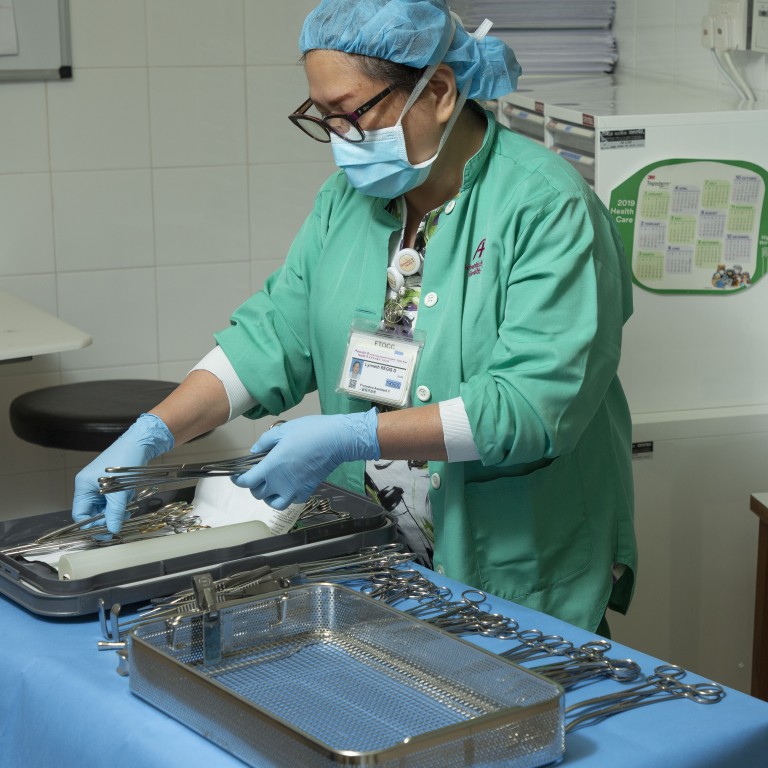
Behind the mask: who are unsung hospital ‘heroes’ helping doctors put patients on road to recovery?
- Behind-the-scenes clinical staff support doctors in four operating rooms at Hong Kong Adventist Hospital – Stubbs Road, in Happy Valley
- Highly trained team offer surgical support, monitor a patient’s vital signs, reduce risk of infection and sterilise operating room and surgical instruments
None of us wants to have to endure surgery, but should misfortune strike and we end up needing an operation we will want it to be carried out at a well-equipped hospital by a seasoned surgeon supported by a team of highly trained staff.
Robotic prostate cancer surgery helps keen triathlete make speedy return to competition
Many of us have only limited knowledge about the detailed workings of operating rooms, also known as operating theatres, which have to be carefully maintained and prepared to ensure they meet strict health and safety standards.
Once a patient is wheeled into the operating room, he or she is put into a deep sleep very quickly … no patients would know us really as we are always wearing surgical masks and gowns in front of them
Andrew Tam, operating room manager at Hong Kong Adventist Hospital – Stubbs Road, in Happy Valley, leads a team of medical professionals who provide surgical support to doctors, including carefully monitoring a patient’s vital signs throughout the entire procedure, managing surgical instruments and minimising the risk of infections to wounds or complications afterwards.
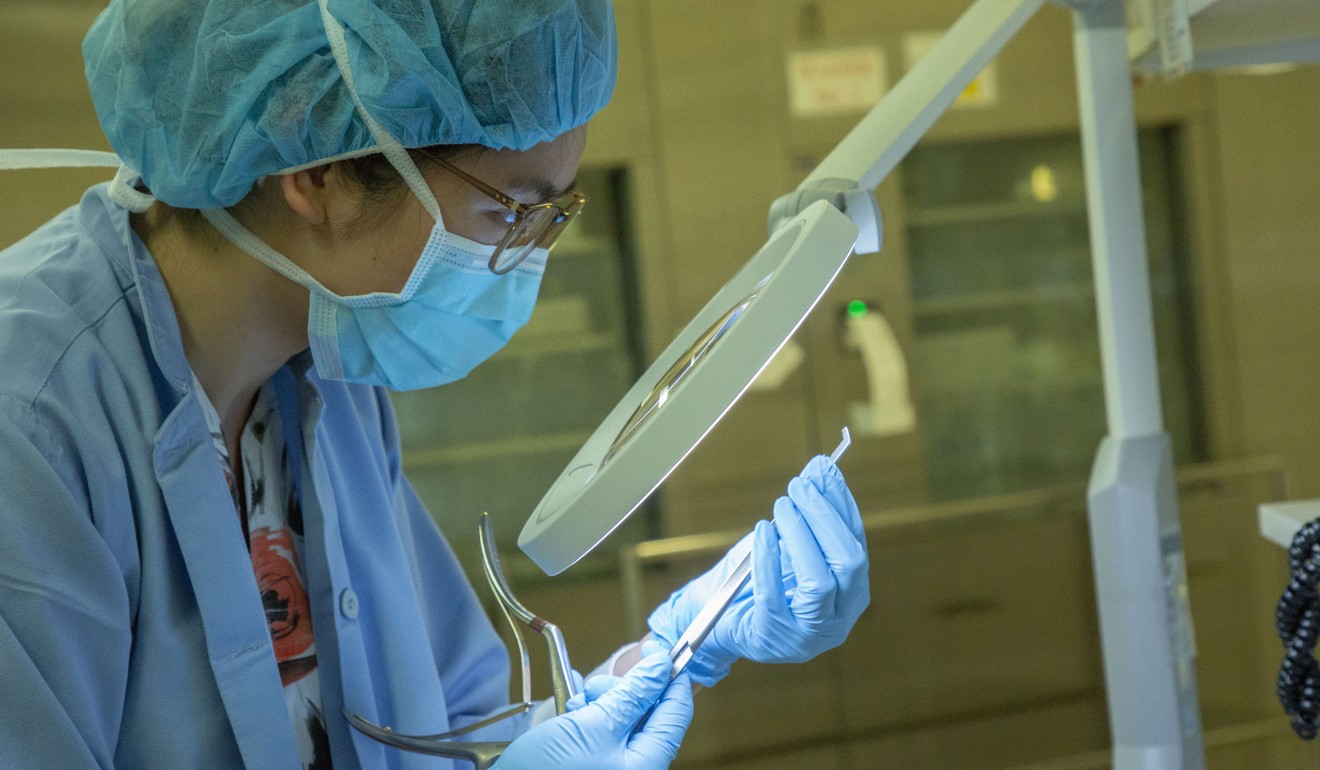
The hospital employs 48 clinical staff who work in its four operating rooms: they are the unseen, unsung “heroes” of every successful operation.
They are involved in about 3,800 operations at the hospital every year, covering all types of specialities, including general, orthopaedic, cardiac, vascular, thoracic, urology, ear nose and throat, eye, plastic, obstetrics and gynaecology, robotic, neurological and total joint replacement surgeries.
There’s no time to waste talking during an operation. The surgeon doesn’t need to speak much, either. The nurses will know what they need to prepare and do next
General operations usually last about one or two hours, but longer, complicated operations, involving more than two surgeons and additional nursing and support staff who rotate their duties, may last for up to 8 or 10 hours.
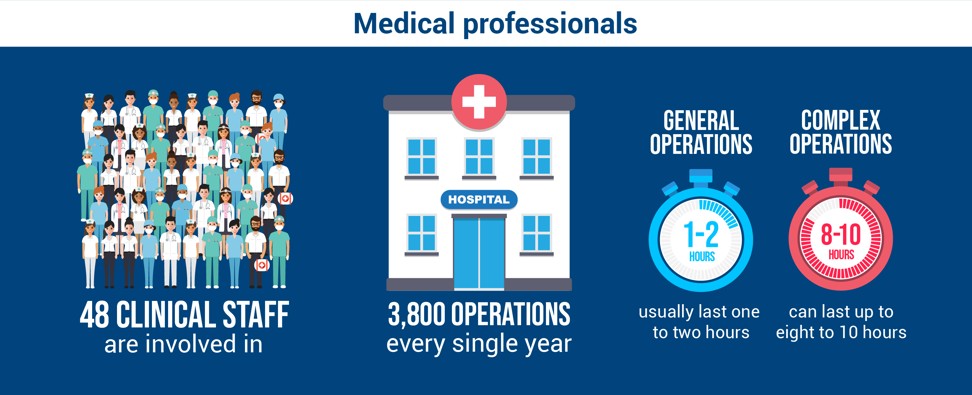
Tam says: “Once a patient is wheeled into the operating room, he or she is put into a deep sleep very quickly and we won’t have much interaction with the patient.
“Honestly, no patients would know us really as we are always wearing surgical masks and gowns in front of them in the operating room.”
How improved 3D breast cancer test can save lives through early diagnosis among Hong Kong patients
Before every operation, Tam – who has worked in operating rooms for 35 years – and his team will go through a list of requirements requested by the doctor to prepare the specific equipment and sets of surgical instruments needed during the surgery.
They will also examine the whole area inside the operating room, including the surgical instruments and medical equipment, to ensure all the surgical supplies are in operational condition and meet international sterilisation standards.
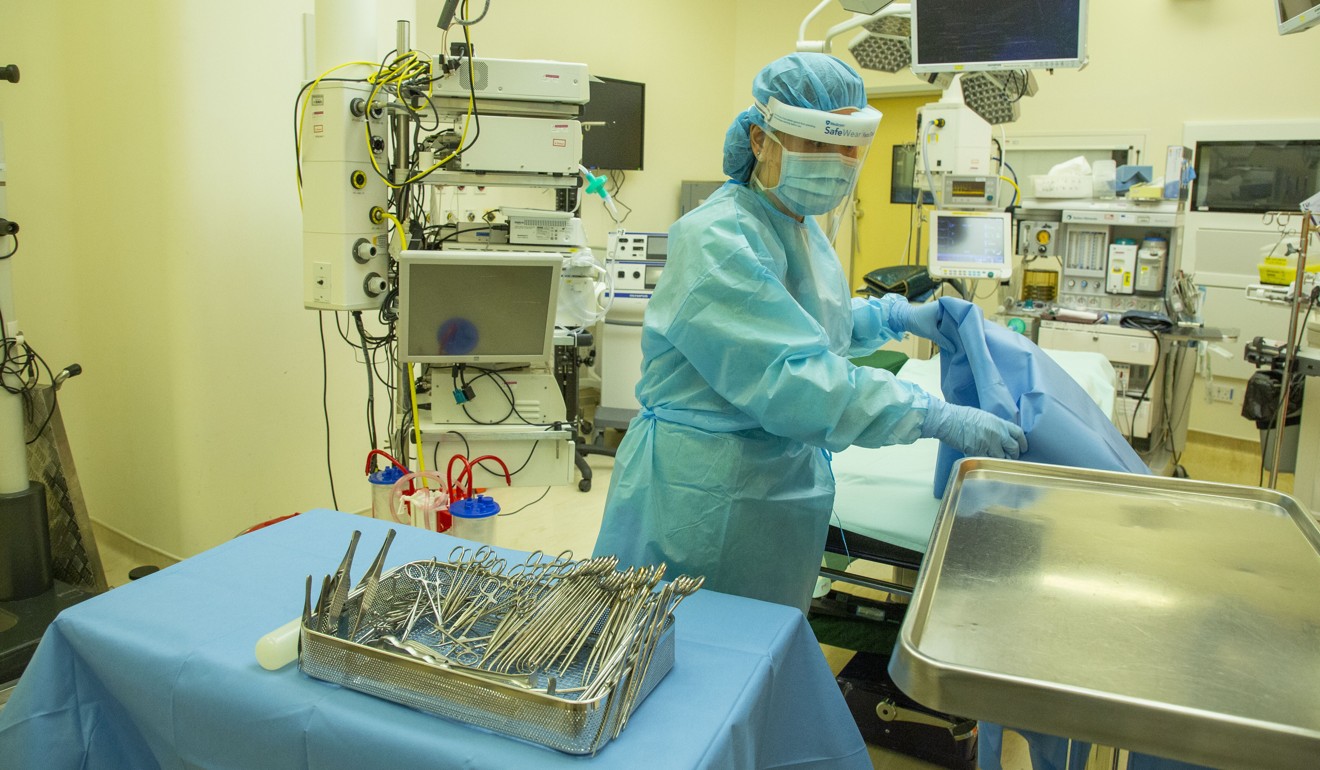
Tam says he and his team work with the doctor as “partners” during an operation.
“We all possess our own professional knowledge and skills,” he says. “We respect – and rely on – each other while carrying out surgery as part of a team, with the doctor as the team leader.”
There’s one common goal during every operation: to complete the surgery safely and minimise a patient’s blood loss
Registered nurse Vikki Fung, who has worked in that role for 13 years and specialises in infection control in the operating room, says members of the team will also talk to the doctor while they are preparing for the surgery.
“Even when carrying out the same type of operation, we will often need to use different equipment and instruments to deal with various cases,” she says.
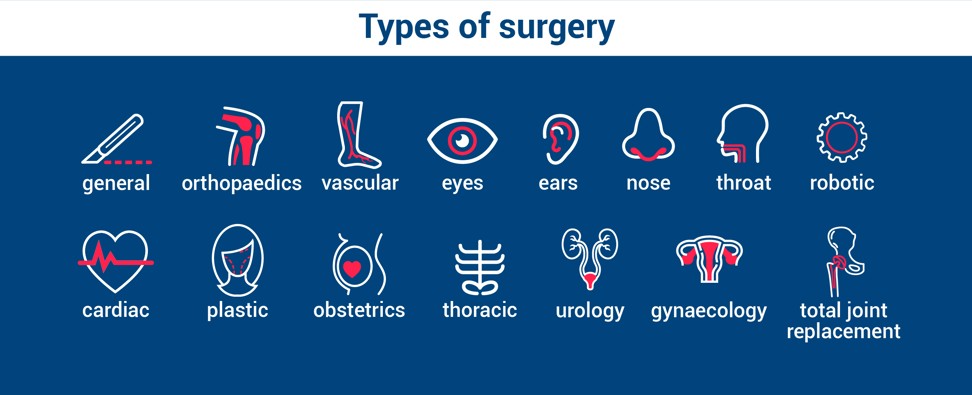
In medical television drama series and films, surgeons are often seen giving instructions to nurses throughout the duration of an operation, but Tam says the reality is very different.
“There’s no time to waste talking during an operation,” Tam says. “The surgeon doesn’t need to speak much, either. The nurses will know what they need to prepare and do next.”
Ex-Hong Kong women’s cricketer back in the swing after successful shoulder surgery
As every second counts during the course of an operation the nurses need to be not only well-trained and react quickly, but also have high emotional intelligence (EQ) to work well with others and deal with the various working practices that occur and communication styles of different doctors.
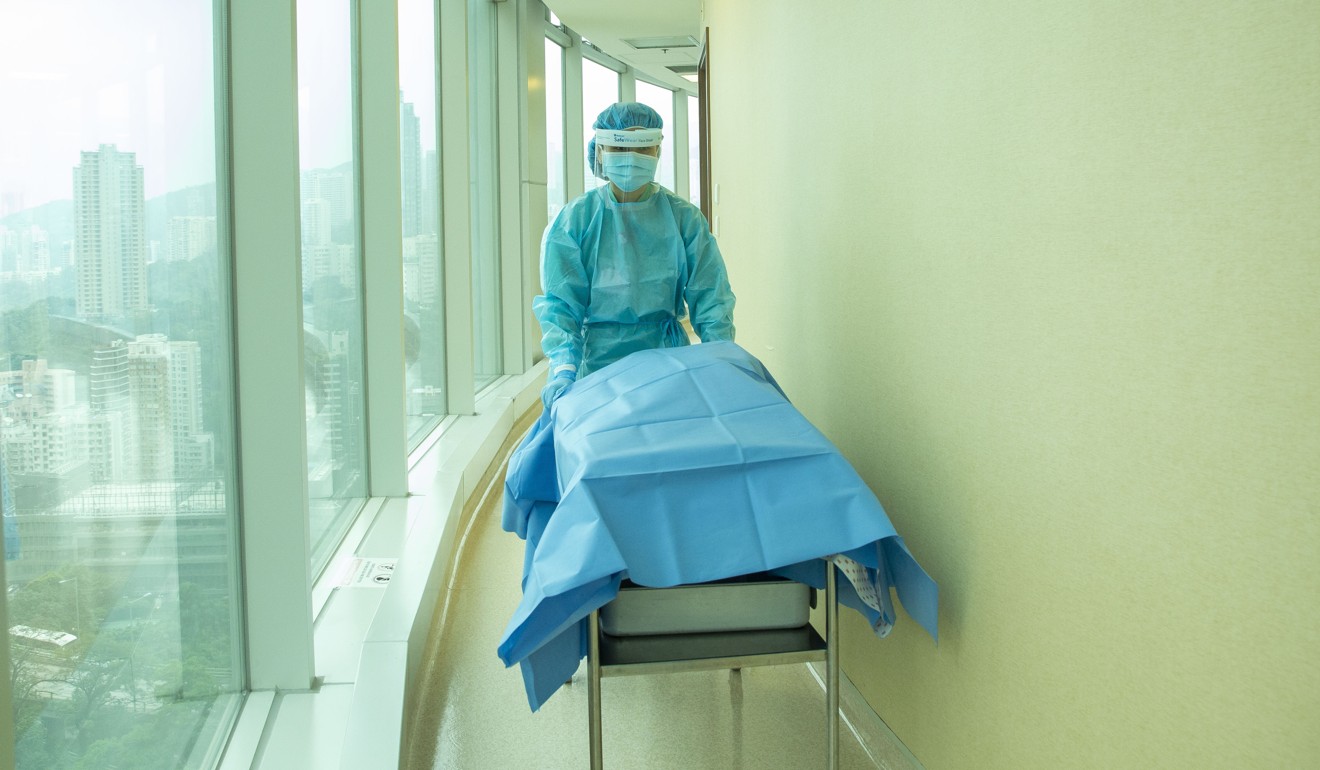
Fung says: “People might have an impression that surgical doctors get irritated very easily because they need to focus on completing the operation safely within a limited time.
“There’s one common goal during every operation: to complete the surgery safely and minimise a patient’s blood loss.”
Even when the surgery is finished and the patient has been transferred back to the ward – where they will stay, on average, for two to five days before being discharged – the team’s job is far from over.
Our sole responsibility is to protect the patient when they are in our care – unable to speak or act on their own – and make sure they are safe during the entire operation. This is what we find really satisfying about our job
The operation room will have to undergo a series of disinfection procedures while the medical equipment and instruments will be sent to the hospital’s Central Sterilisation and Reprocessing Unit (CSRU), led by nursing officer Joe Cheung.
First, the instruments will be carefully counted after being returned following the operation.
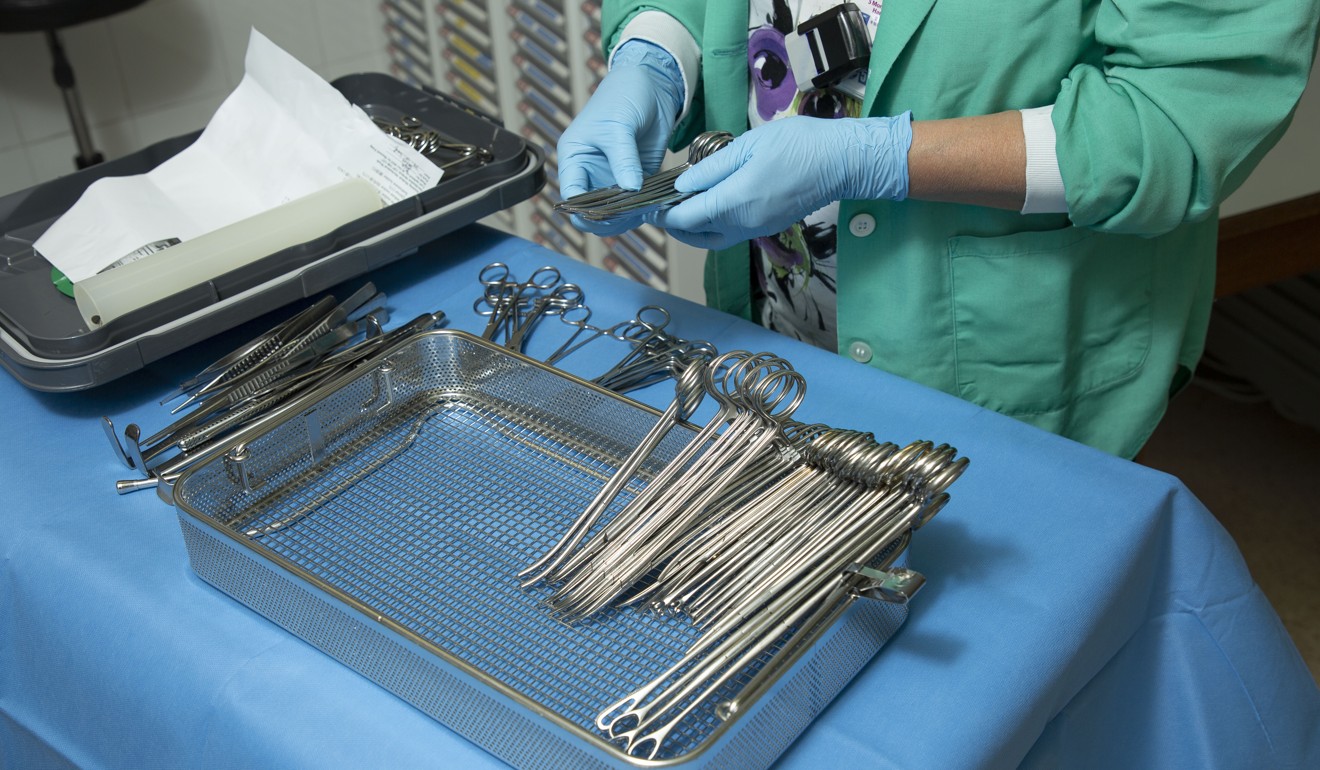
Cheung’s eight-member team will then carry out a series of activities, which normally last about three hours, including cleaning the surgical instruments in a washer, decontamination, inspection, maintenance, functionality and integrity checks and then sterilisation, before they are carefully packed and sent to a controlled storage room.
The sterilised instruments can be stored there for up to six months.
We need to clean off all the bodily fluid, foreign bodies and dirt from instruments immediately after surgery … [If we leave this task] the sodium chloride in body fluids will soon start to corrode the instruments
“The process of cleaning and decontamination is very important,” Cheung says. “We need to clean off all the bodily fluid, foreign bodies and dirt from the instruments immediately after the surgery.
“We won’t leave this task overnight because it’s very hard to wash away the blood and body stains from the instruments the next day.
How sports injuries are on the rise among Hong Kong's ‘weekend warriors’
“Despite all of these stainless-steel instruments being of very high quality, the sodium chloride found in body fluids will soon start to corrode the instruments and shorten their lifespan.”
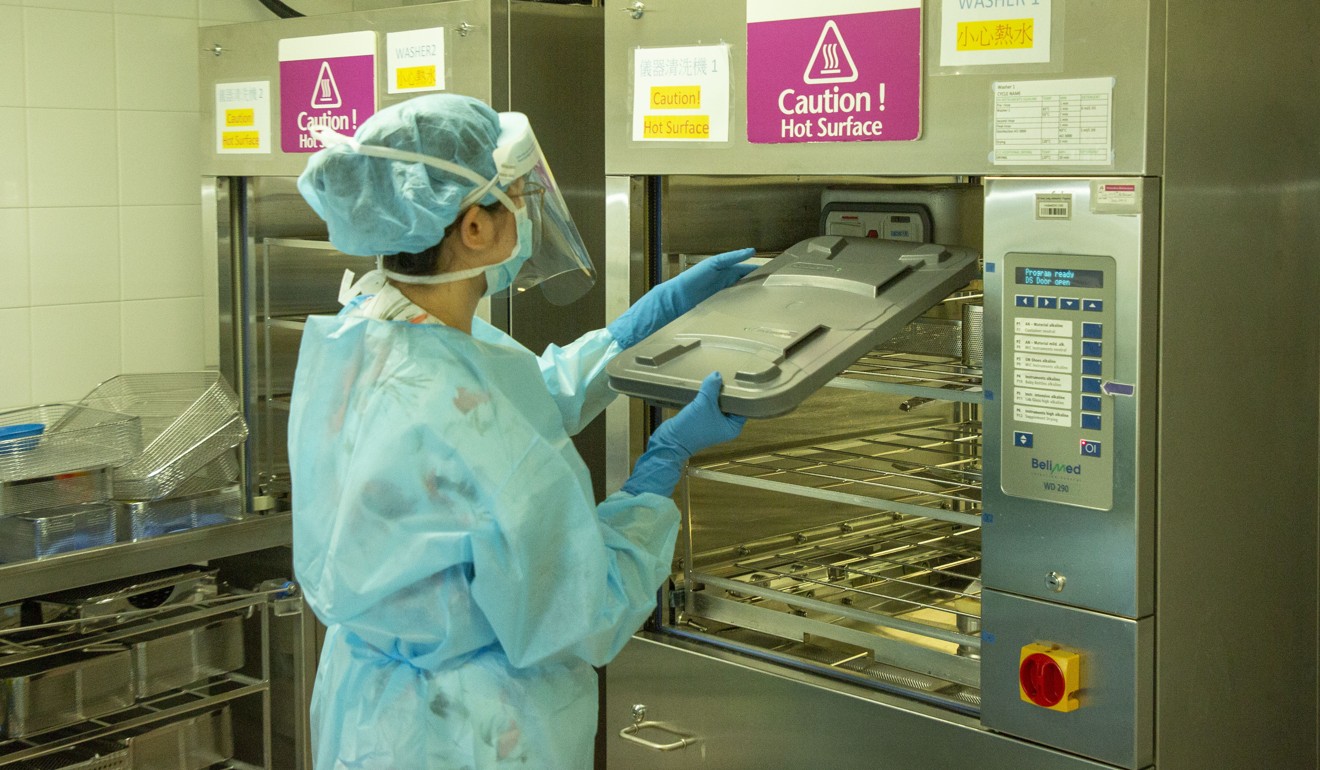
The hospital also has a tracking system to make it easier to identify and trace the different items of equipment and instruments that have been used for which patients.
Since 2017, the hospital’s CSRU has received globally recognised ISO (International Organisation for Standardization) accreditations for its quality management system and for meeting the international requirements of risk management systems for its medical devices.
How minimally invasive heart surgery helped keen marathon runner with life-threatening condition to get his ‘rhythm’ back
Cheung says everyone in the team is meticulous about their work to ensure everything is done properly.
[Staff in the operating room] all possess their own professional knowledge and skills. We respect – and rely on – each other while carrying out surgery as part of a team, with the doctor as the team leader
“We won’t take any short cuts or skip any steps,” he says. “We will carefully double-check one other’s work by hand as well because we believe that patient safety is imperative.
“To maintain the high standards, we are continuously upgrading and improving our department.”
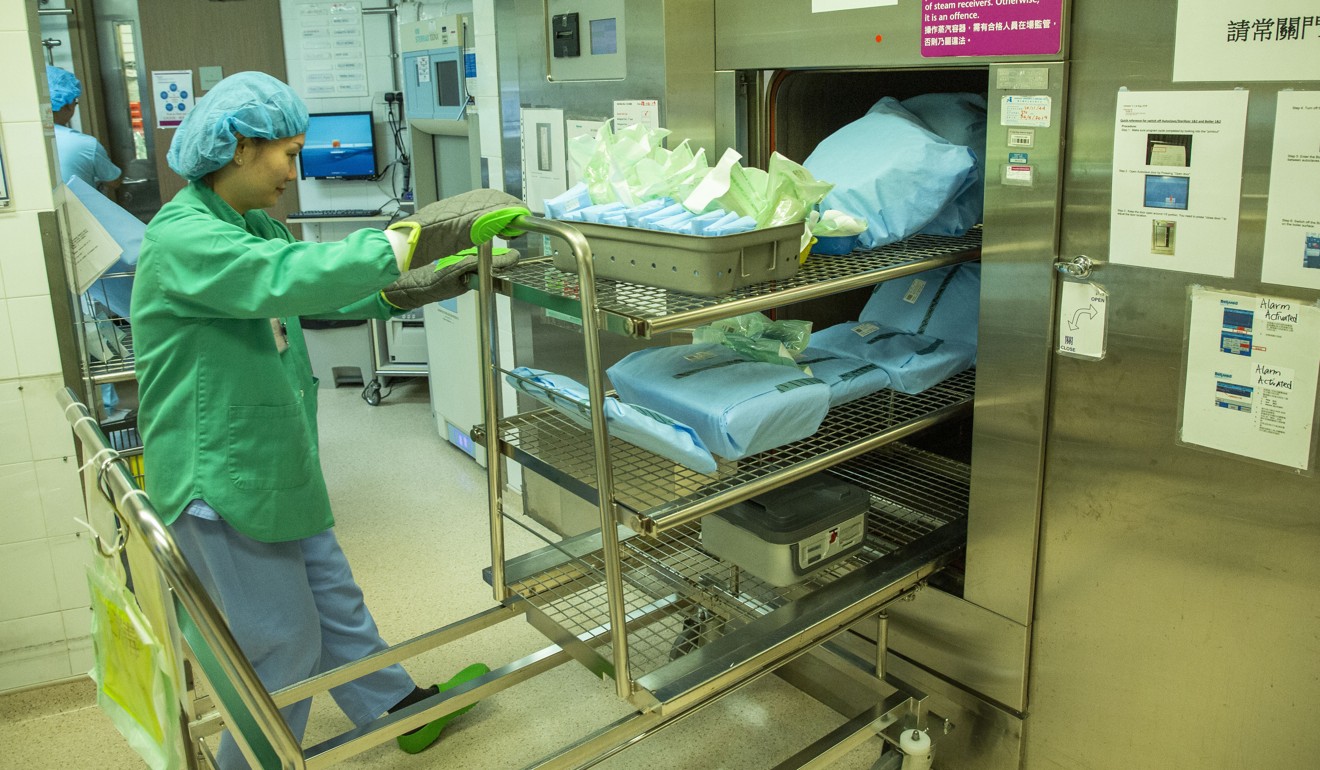
Amy San, nurse in charge of CSRU, will check on conditions inside the unit, including temperature and humidity, first thing every morning. She will also run challenge tests on all the washer and sterilising machines to ensure they are functioning properly.
“Our jobs are physically demanding,” San says. “We also need to be very focused. We have to pay attention to every detail and read the instructions and menus of all the medical equipment, relevant documents and test reports carefully.”
With a decade of medical experience, she says she finds her current duties very satisfying.
Our jobs are physically demanding and very important. I feel happy when I hear about fewer wound infection cases and know that patients are recovering better and faster
“Our job is very important, San says. “I feel happy when I hear about fewer wound infection cases and know that patients are recovering better and faster.”
Unlike the hospital’s frontline medical staff who look after patients in the wards, these behind-the-scenes workers never receive a “thank you” note from patients for the work they do.
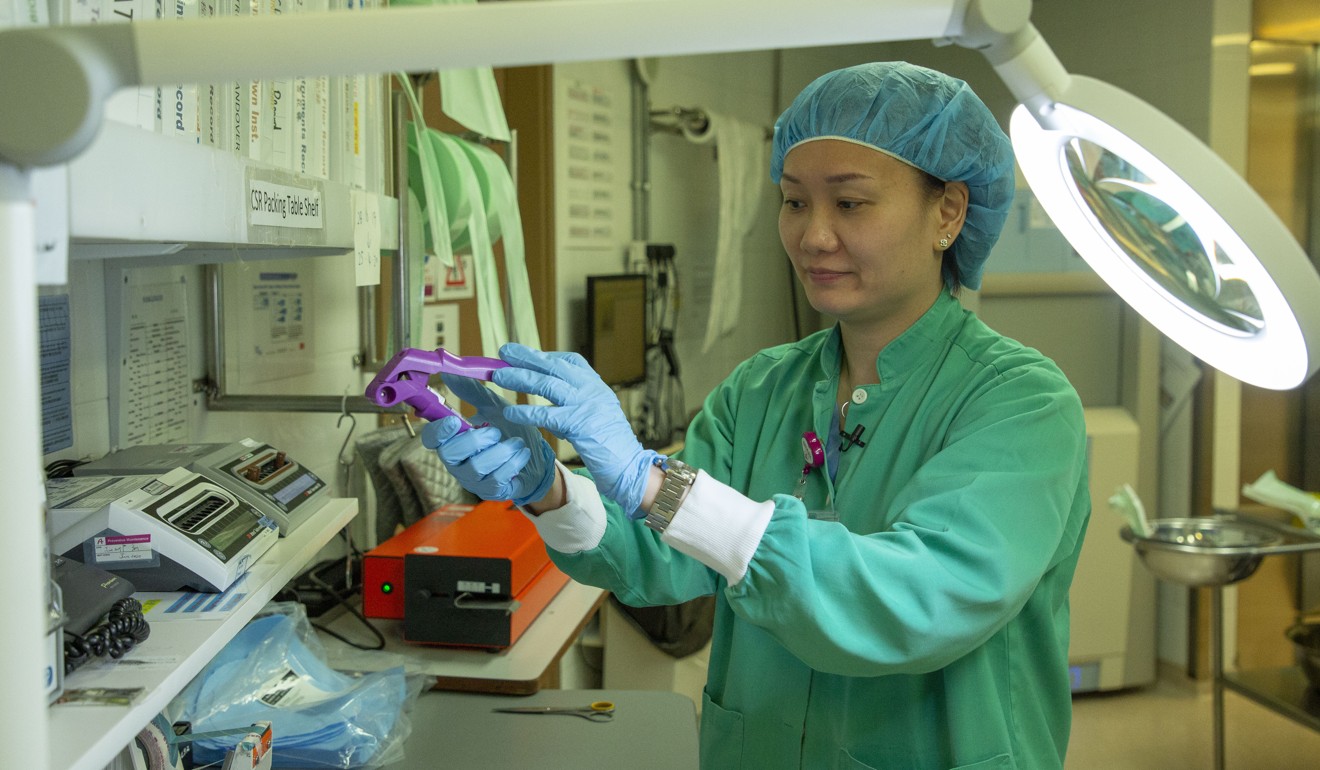
Some people might think that the team get little job satisfaction from working in an operating room because of this lack of recognition from patients.
However, Fung says they feel otherwise.
“Our sole responsibility is to protect the patient when they are in our – care and unable to speak or act on their own – and to make sure they are safe during the entire operation,” she says. “This is what we find really satisfying about our job.”

